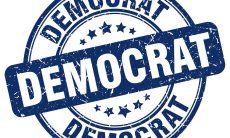Every time you see the news there is another story of a person’s or company’s reputation at risk–or worse. The growing risk from a tarnished reputation undermining the value of a brand is an alarming trend with implications for widespread, severe damage in business and politics. To really appreciate the gravity of this emerging trend, it is important to fully understand branding. A brand is much more than just a name. It is something (e.g. a product, service, company, government institution, person, country, etc.) that essentially constitutes a promise of relevant benefits and value to an audience, which will ideally instill trust and an emotional bonding with its stakeholders. It is a set of credentials with an expectation of performance. Perceptions of credibility, integrity and trust are critical. Similarly, a reputation is an accumulation of actual experiences and feelings for a brand, pro and con, that will shape these perceptions over time. Today a reputation can be transformed and more quickly shared due to social media. And this makes the brand reputation risks more precarious and explosive than ever.
In marketing it is essential to remain focused on the basic ingredients that sustain the success and viability of a brand, including nurturing a reputation that reinforces the brand’s underlying, promised benefits – how its message or impression is perceived, is it authentic and credible, whether it cultivates trust, does it positively and emotionally engage people, and ultimately can it motivate behavior. Anything that contradicts or threatens a brand reputation can be an enormous risk that can lead to alienating customers, financial problems, negative investor recommendations, employee resentment, etc.
In today’s divisive, partisan world, it can be difficult to consistently apply these criteria for maintaining a relevant, sustainable brand. Many politicians seem to be over zealous when taking a stand on an issue, which further exacerbates this partisan climate. Each one is a brand with a promise that ideally should engage and inspire credibility and trust among its constituents. However, the government is continually perceived as the least trusted institution, according to recent Edelman Trust Monitor reports. Similarly, such brand vulnerabilities and threats are becoming more ubiquitous and serious in business too.
With social media driving, even amplifying the interactive discussion of brands of all types, it is not surprising that Aon, a leading insurance company, found that “damage to brand and reputation” was the top-ranked risk in their annual Global Risk Management survey of almost 2,000 executives around the world in 2017. This was the second year in a row where “brand and reputation” was rated the number one risk, with “political risk/uncertainties” entering the top ten for the first time.
- Damage to reputation/brand
- Economic slowdown/slow economy
- Increasing competition
- Regulatory /legislative changes
- Cybercrime/hacking/viruses/malicious codes
- Failure to innovate/meet customer needs
- Failure to attract or retain top talent
- Business interruption
- Political risk/uncertainties
- Third party liability
While the risks to brand reputation have never been higher, the role of brands as potential advocates for a better society has become more important in the eyes of consumers around the world, according to the latest 2018 Edelman Earned Brand study. Nearly two-thirds (64%) of consumers make a purchase decision (including boycotts) based on the brand’s stand on social issues, up from 51% in 2017. Millennials remain the most active supporters of these social issues (69%), but the biggest surprise was the significant rise in support from the 55+ contingent, +16 points versus 2017.
Both trends, the pervasive increase of brand reputational risks and the growing importance of brand support for social issues, clearly indicate that companies must be better prepared to minimize their brand vulnerabilities and also be more proactive for taking a stand on relevant social issues, especially where their values are aligned and they can build trust.









